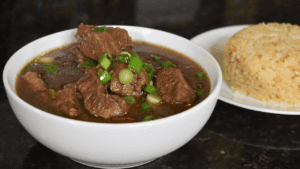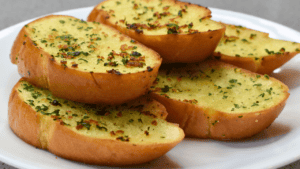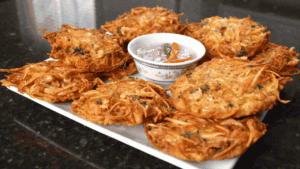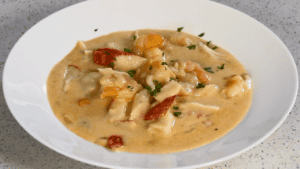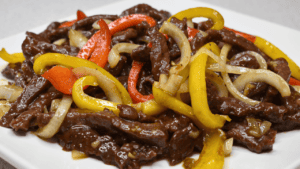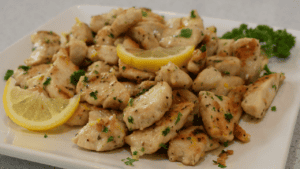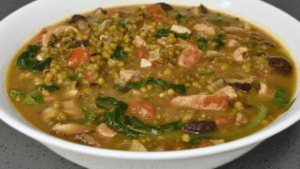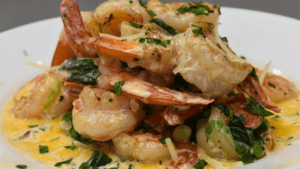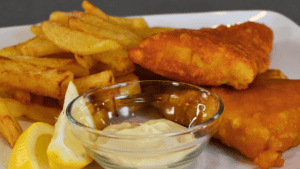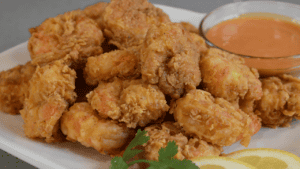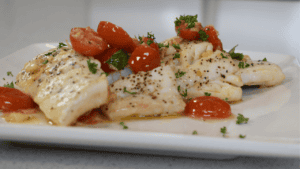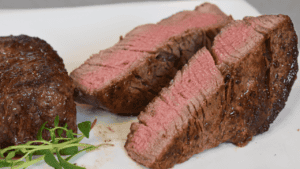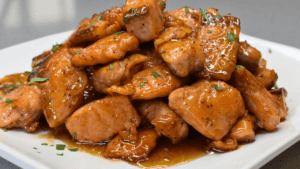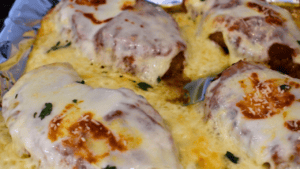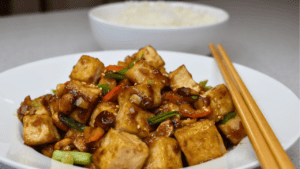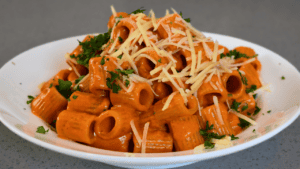Bangus Sisig
Bangus Sisig is a Filipino dish made from milkfish (bangus) that has been deboned, flaked, and cooked with various ingredients such as onions, garlic, chili peppers, and mayonnaise. It is typically served on a sizzling plate and topped with a raw egg for added creaminess.
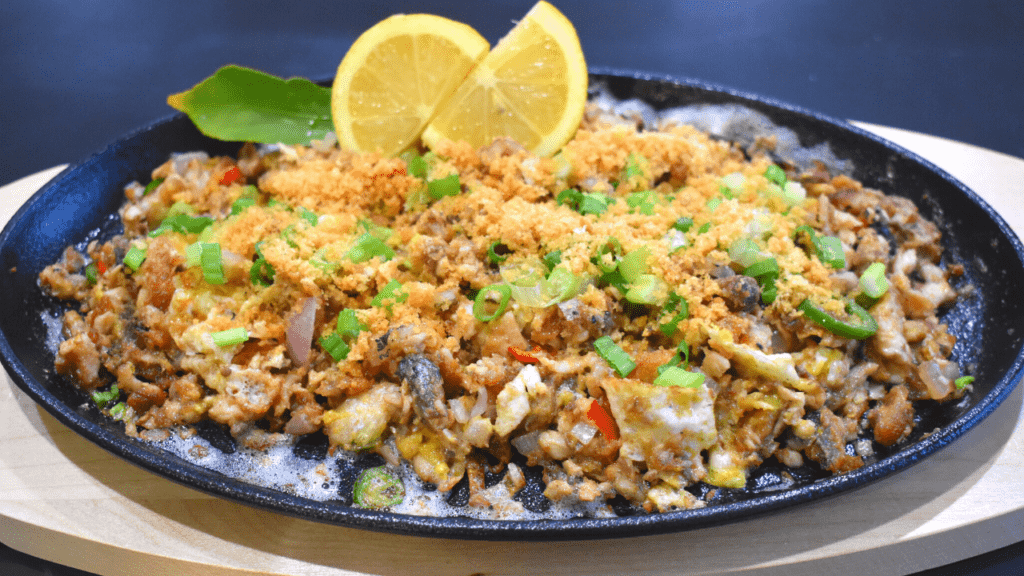
Creating Bangus Sisig: A Flavorful Twist on a Filipino Classic
Filipino cuisine is a mosaic of vibrantly flavorful dishes, and among its most beloved is the sizzling, sassy sisig. Originally made with parts of a pig’s head and liver, sisig has evolved to include a variety of meats and seafood. One incarnation of this dish that stands out is the Bangus Sisig, which substitutes pork with bangus, or milkfish. Its strong presence in the Philippines’ gastronomic landscape reflects not only the nation’s love for the spicy, savory profile but also its dedication to innovation. If you’re eager to bring a taste of the Philippines into your kitchen, join us for a deep dive into creating this sensational seafood sisig.
Ingredients and Preparation
The Essential Components
To craft the perfect Bangus Sisig, gather the following core elements:
- 1 cup cooking oil, preferably with a high smoke point
- 1 boneless bangus (milkfish)
- 1 finely chopped onion
- 1 red chili pepper, also finely chopped
- 1 green chili pepper, for a hint of color and extra heat
- 1 tablespoon of mayonnaise
- 1 tablespoon of soy sauce
- ½ teaspoon of salt
- ½ teaspoon of garlic powder
- ½ teaspoon of ground black pepper
- ½ teaspoon of ground ginger
- 1 tablespoon of lemon juice, to brighten the flavors
- 1 cup of pork chicharon (pork rinds), essential for that crispy texture
The Art of Preparation
- Begin by frying the bangus in your preferred vegetable oil until each side achieves a golden brown hue.
- Once fried, drain the fish on paper towels before shredding the meat into delicate, flavorful flakes. Discard the head, tail, and any remaining bones.
- In a spacious mixing bowl, meticulously blend the bangus flakes with the chopped onions, chili peppers, mayonnaise, soy sauce, salt, garlic powder, black pepper, ginger, lemon juice, and the vital ingredient – pork chicharon. This step is more than mere mixing; it’s an opportunity to layer your flavors with care and consideration.
- Next, fire up your cast iron skillet, setting the stage for the symphony of sizzling sounds that is the namesake of this dish. Add butter, an egg, and the pre-mixed fish medley. Cook with vigor for approximately 10 minutes, or until each bite promises a harmonious blend of textures and tastes.
Variations and Tips
Flavorful Flourishes
To elevate your Bangus Sisig, consider these creative ingredients or techniques:
- Instead of mayonnaise, experiments with cream, yogurt, or even coconut cream for varied levels of richness and tang.
- Enhance the umami profile by incorporating a splash of fish sauce or a dusting of monosodium glutamate (MSG).
- Play with the level of heat by adding more or fewer chili peppers, and explore the myriad types available for distinct piquancy.
Mastering the Craft
- Achieving the perfect flake is key – the fish should be dry and the strands soft and easily separated.
- Ensure your skillet is thoroughly preheated for that signature sizzle, and use a well-seasoned cast iron skillet for the best sear and flavor.
- Balancing flavors is an art – taste as you go, adjusting the seasoning and ingredient proportions to match your preference.
Serving Suggestions
Artful Presentation
Serve your Bangus Sisig on a sizzling plate, straight from the stovetop to the table to bring that theatrical element to your dining experience. Garnish with scallions, a squeeze of fresh lemon, and a sprinkle of deliciously crushed pork chicharon to add color, zing, and crunch.
Harmonious Pairings
For a complete meal, consider pairing Bangus Sisig with steamed rice or fried rice to soak up the flavorful juices. On the side, offer a cool, creamy, vegetable-heavy dish like ensaladang talong (eggplant salad) to provide a refreshing contrast. If you’re in the mood for libations, a light lager beer or a chilled glass of calamansi juice can be the perfect accompaniment to tame the dish’s spiritedness.
Health Benefits
Nourishing with Sisig
While Bangus Sisig might be a decadent dish, its nutritious components should not be overlooked:
- Bangus is a fantastic source of heart-healthy omega-3 fatty acids and high-quality protein.
- The aromatic spices and zesty lemon juice offer antioxidant properties and can aid in digestion.
- Choosing whole food ingredients over processed alternatives can render your dish healthier without compromising on flavor.
A Lighter Take
For a lighter version, consider air-frying the bangus instead of pan-frying and substituting pork rinds for crushed nuts for a healthier dose of crunch. Opting for a mayonnaise alternative like a light, tangy yogurt can also cut down on unhealthy fats while preserving creaminess.
Conclusion
Bangus Sisig is a dish worth mastering, not only for its delectable taste but also for the cultural connection it brings from the shores of the Philippines to your kitchen. The process of creating this seasoned fish stir-fry is an adventure in and of itself – an exploration of flavor, technique, and tradition. Whether you choose to adhere to the classic recipe or venture into personalized spins, the joy of cooking and sharing this rich dish is unparalleled. In savoring Bangus Sisig, you’re not just indulging in a meal; you’re partaking in the Filipino tradition of warmth, celebration, and the joy of good food.
Bangus Sisig Frequently Asked Questions
What is bangus sisig made of?
Bangus sisig, also known as milkfish sisig, is a popular dish in the Philippines. It is made from chopped bangus (milkfish), usually grilled or fried first, then mixed with onions, chili peppers, calamansi juice (or lemon/lime juice), mayonnaise and other spices and seasonings. The mixture is then typically served on a sizzling hot plate.
What does sisig taste like?
The taste of sisig can vary depending on the ingredients used and how it is prepared. Generally, it has a rich and savory flavor with hints of sourness from the calamansi or lemon/lime juice. The texture can range from crunchy to creamy depending on how much mayonnaise is added.
What is the famous dish of sisig?
Bangus sisig is considered one of the most famous dishes in Philippine cuisine. It originated from Pampanga province and has become a staple in Filipino celebrations and gatherings. In recent years, it has gained popularity worldwide due to its unique flavors.
What is sisig in english?
In English, “sisig” translates to “sizzling” or “stir-fry”. However, there isn’t really an equivalent English term for this specific dish because it is so unique to Philippine culture.
Why do Filipinos love sisig?
Filipinos love sisig because of its delicious taste and versatility – it can be eaten as pulutan (bar snacks) with drinks or as a main course served with rice. Sisig also represents Filipino ingenuity – using unconventional ingredients like pig’s head or fish belly scraps to create something flavorful and satisfying.
Does sisig really have mayonnaise?
Traditionally, sisig did not include mayonnaise as an ingredient but nowadays many people do add mayo for creaminess and extra flavor. Some people prefer their sisig without mayo while others enjoy the added creaminess that it brings.
Why is sisig called sisig?
Sisig got its name from the sound made by sizzling meat when being cooked on a hotplate (“sizzle-sizzle”). This cooking method ensures that all flavors are infused together resulting in a delicious blend of flavors in every bite.
Why do people love sisig?
In addition to its taste, Filipinos love sisig because it represents Filipino culture and identity. It is a dish that originated from local ingredients and cooking methods, showcasing the creativity and resourcefulness of Filipinos in the kitchen.
Is sisig part of Filipino culture?
Overall, sisig has become an iconic part of Filipino cuisine and culture. It may have different variations and adaptations but its popularity remains strong among locals and foreigners alike.
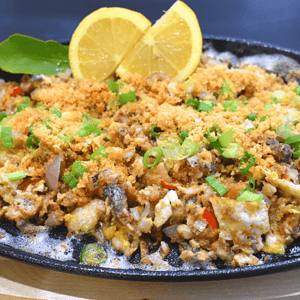
Bangus Sisig
Ingredients
- 1 cup cooking oil vegetable oil
- 1 pc bangus (milkfish) boneless
- 1 pc onion chopped
- 1 pc red chili pepper chopped
- 1 pc green chili pepper chopped
- 1 tbsp mayonnaise
- 1 tbsp soy sauce
- ½ tsp salt
- ½ tsp garlic powder
- ½ tsp ground black pepper
- ½ tsp ground ginger
- 1 tbsp lemon juice
- 1 cup pork chicharon (pork rinds) crushed
Instructions
- In a pan over medium heat, fry fish on both sides until golden brown.
- Drain fish on paper towels then shred meat into flakes. Remove head, tail, and the remaining bones.
- In a large mixing bowl, combine flaked bangus meat, onions, chili peppers, mayonnaise, soy sauce, salt, garlic powder, ground black pepper, ground ginger, lemon juice, crushed pork chicharon.
- Heat cast iron skillet over medium heat. Add butter, egg, and flaked fish mixture. Cook for 10 minutes. Garnish with chopped scallion and crushed pork chicharon.
